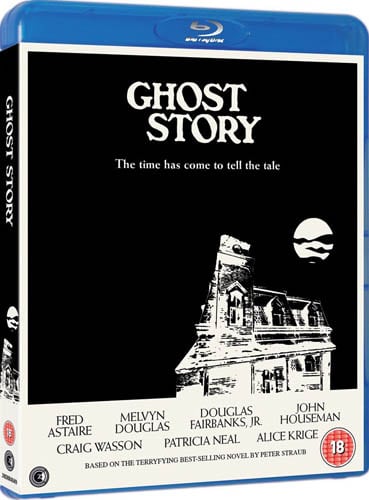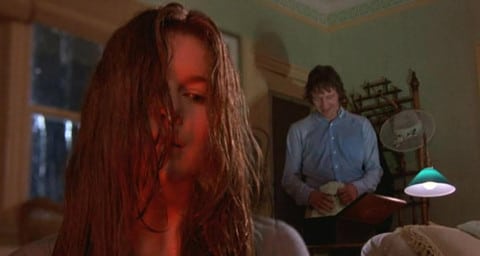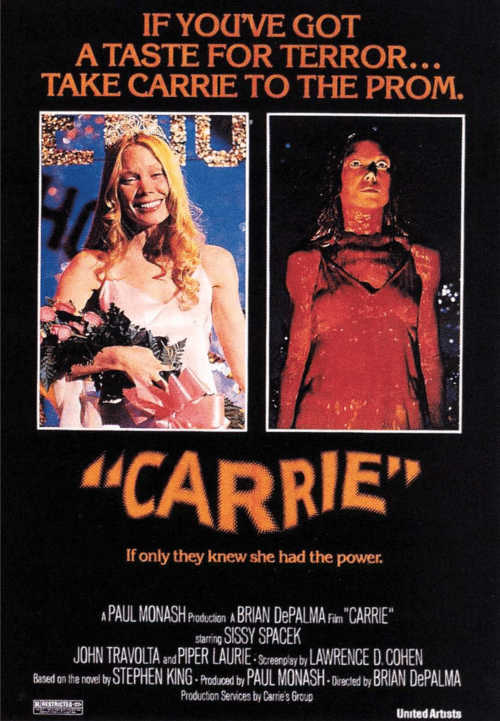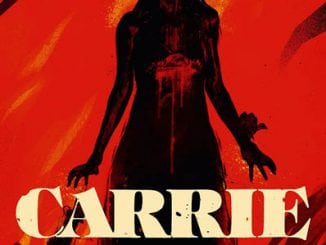Ghost Story (1981)
Directed by: John Irvin
Written by: Lawrence D. Cohen, Peter Straub
Starring: Alice Krige, Craig Wasson, Douglas Fairbanks Jr., Fred Astaire
USA
ON BLU-RAY AND DVD: 7th December
RUNNING TIME: 110 min
REVIEWED BY: Dr Lenera, Official HCF Critic
In a small New England town, four elderly friends; business owner Ricky Hawthorne, lawyer Sears James, Dr. John Jaffrey, and town mayor Edward Charles Wanderley, have formed what they call the Chowder Society, a club where they tell each other scary stories. However, they begin to experience nightmares. When Edward’s son, David, living in New York, falls from a window after his fiancée turns suddenly into a decomposing corpse, his other son, Don, a college professor who has fallen on hard times, shows up. Edward becomes so distraught after a nightmare that he wanders across a bridge, sees the same female apparition that caused his son to die, and falls to his death. Don approaches the remaining three friends, requests membership in their group and offers up a bizarre ghost story of his own….
Ghost Story is quite a flawed film really, but it’s one I find myself returning to every now and again. It opens with one old man telling a spook story to three others, and indeed the film does have a lovely old-fashioned classic ghost story feel about it, a story that you might have read aloud to family or friends in front of a fire in Victorian times. While it contains a few jolts and chills, it’s not especially frightening, yet does have a persuasive chill about it which, while not that strong, does make the movie stay with you and perhaps become more frightening the more you think about it. I first saw it at around 15 years of age, and, though I wasn’t scared out of my wits, the thing did, appropriately, haunt me for some time, particularly its main character who to me remains one of the screen’s greatest ghosts. I ought to warn first time viewers right now that Ghost Story’s pace may seem almost as arthritic as its four Chowder Society members, while a lot of things in it just don’t make much sense even considering the genre it’s in, but those things don’t seem to me to be much of a problem second time round. I really do feel that it’s a film worth coming back to even if it initially disappoints, and one can then appreciate the many plus points about the film, such as its hugely compelling story and the stunning photography of master Jack Cardiff. And I think you can see the film’s influence on movies like What Lies Beneath and some Japanese horrors like Ringu.
It was adapted by Carrie scriptwriter Lawrence D. Cohen from the novel of the same title by Peter Straub which had been a big critical and commercial success. His first draft retained much of the hugely dense, sprawling book, but Cohen realised it would have resulted in far too long a movie, so he whittled things down in successive drafts and ended up just retaining the core of the story, while also changing its immortal shape changer into a more simple vengeful ghost [though odd hints remain], these things angering many fans of the book. Filmed in Woodstock, Vermont, Saratoga Springs, New York, and an abandoned railway station in New York City, it was a prestigious production, what with four elderly Hollywood legends – Fred Astaire, Douglas Fairbanks Jnr [who died before the film was released], Melvn Douglas and John Houseman – coming to star in it. After an early preview, the film lost some footage, notably an extended coda and a poltergeist sequence, while it was decided that more effect shots were needed, though they then decided to delete most of them, including a really eerie faceless ghost which later turned up in The House On Haunted Hill, and a decomposing corpse of the Don Wanderley character which Don would have seen at the end. Some have claimed that the first theatrical showings had a scene suggesting a perverse relationship between Gregory and Fenny Bate [whose scenes were also cut down], the two human accomplices of Eva the ghost. Ghost Story did do well at the box office though got a mostly muted reception.
It really does begin superbly, with one of the elderly guys telling a ghost story to the others, in an ornate brown dominated room replete with a fireplace. The story is obviously reaching its climax and we see it visualised. The shot of a man struggling inside a coffin which appears to have a glass cover, and the fact that it’s virtually silent, makes it all pretty creepy. Then we cut to New York and David’s sudden death [some sudden full frontal nudity from Craig Wasson’s here] upon seeing his fiancée suddenly become a corpse, and as the old men are all shown having nightmares and waking up in terror, there really is a great sense of terrible horror to come. Not too much of that really ends up happening – shock cuts to a rotting corpse are undeniably effective, and Rick Baker’s creation is amongst the best of its kind – but the film only seems to have one trick up its sleeve and it proceeds to almost slow to a halt with a lengthy flashback sequence featuring Don’s affair with the eerie Alma. Considering that soon after that we have another lengthy flashback, showing the event from decades ago that started everything, this first flashback could really have been cut to just a couple of scenes. Director John Irvin made the superb TV series of Tinker Tailor Soldier Spy prior to Ghost Story, and really pulled off some complex story telling in that, but he doesn’t quite pull off Ghost Story’s odd structure. The film also seems to build up to a terrifying climax with Don in the spooky old house of the film [its exterior shots mostly an excellent matte painting by Albert Whitlock], but then seems to stop, everything disappointingly hinging on a corpse falling out of a car.
Nonetheless, the set pieces where Eva wreaks her vengeance are expertly handled with a great deal of suspense, and there are some great moments throughout, like when the eyes of all four of the old men are cut together quickly in one pivotal moment. This makes the carelessness of some aspects of the film seem quite odd. The plot is definitely fascinating, but it has some gaping holes, especially with regard to Eva. Eva is a ghost who seemingly only exists in the minds of her victims, and yet in the film she apparently fills out a job application at the local university, gets hired as the Dean’s secretary , and proceeds to show up to work every morning to put in an eight hour day for weeks until she moves on to her next victim. This would have made a bit more sense if Don’s ghost story sequence had been shot more like The Sixth Sense, with Alma only existing because Don “sees” her, not anyone else. But then you also get a genuinely unnerving bit [pinched wholesale by Brian De Palma for Raising Cain] where a supposedly dead body comes to life in a car sinking into a lake, which is perfectly put together. Ghost Story is such an uneven film, but uneven films can be just so interesting, and much of the good in this one is not just good but very good, for example Cardiff’s cinematography, which is just stunning from scene to scene and very clever too. David’s death is shot mostly in green and pink, then later on, when Eva is having dinner with Don, who of course is David’s brother, the same green surrounds where Eva is sitting and envelopes her. Even if the viewer isn’t aware of this, the film is subtly signalling to him or her that Don had better watch out!
What is very haunting indeed in the film is Alice Krige, who is quite simply incredible as Eva. As she also proved later on in Sleepwalkers and Star Trek: First Contact, but to my mind not to as good effect as here, this actress, who hasn’t made nearly enough films, has a bizarre ability to be very frightening and very sexy at the same film. Her mannerisms and her English accent both seem to suggests both perfect upbringing and a promise of uninhibited carnal pleasures, while the way she says lines like “dance with me, you toad” are skin crawling. Her character is poorly and inconsistently written but in some ways that’s why she’s so fascinating, and she even makes her just a little bit sympathetic too. I must also say that, while in many ways this is a nicely old fashioned horror movie, it’s still not really one for the kids to watch as it features some sex and nudity, though Krige fans [I plead guilty] will no doubt be aware that the old fullscreen TV and video versions of the film contains “more” of her than can be seen in the widescreen cinema, DVD and Blu-ray versions!
Astaire has the most prominent role out of the old veterans and he’s wonderful, helping to add little humorous touches to his character, while Craig Wasson has that likeable “everyman” persona he also put to good use in Body Double. After these two films and Four Friends you’d have probably predicted he’s have a major career that wasn’t to be. The score by Philip Sarde has a dark beauty and is sometimes very eerie indeed, especially during the scenes set in the derelict house. I sometimes think that Ghost Story could do with a remake, perhaps as a mini-series so it could incorporate more of the book, though certain aspects such as Krige could never be matched in it. In any case, Ghost Story stays long in the memory and, like a fine wine, gets better and better with age. Its resonance, I suppose, is because it’s really about the fear of dying and the regrets of old age. Do we ever become truly aware of the ramifications of all we do? Do we ever think that our actions have altered events that were perhaps not meant to be changed? Perhaps the real ghosts in the film are the younger selves of its elderly characters? In its own way, Ghost Story is actually very haunting indeed.
Second Sight’s Region ‘B’ Blu-ray release of Ghost Story appears to be a port of Shout Factory’s Region ‘A’ release. I’d never really appreciated the striking photography of the film much before I’d seen this Blu-ray, the format really bringing to life its largely autumnal look as well as the moments utilising more stylised use of colour. Aside from the odd bit of dirt, Ghost Story looks very good indeed and I think may now win more fans. Aside from the very low-key but certainly interesting director’s commentary, the special features mostly consist of quite lengthy interviews which are never less than fascinating. Interesting how Straub, who talks about the writing process of his novel in an especially absorbing piece, barely mentions the film, obviously still finding it hard to talk about!









Be the first to comment